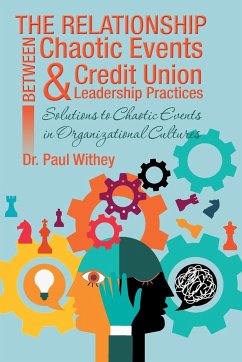Organizational crises, in modern society, requires an immediate response. Chaotic stages occur during organizational changes resulting in emotional experiences for leaders who develop intense feelings of anger, shock, and frustration. Leaders who are not prepared will be overwhelmed by the need for an aggressive response to change. The ability to solve problems successfully will increase movement of the organization though the chaos stage. Building a foundation of preparation for a leader, prior to the organizational change stage, will decrease levels of dysfunction the organization may experience. It is time for a new approach to managing organizational chaos. The research in this book provides original contributions to leadership studies by applying general systems and chaos theory to leadership behaviors in times of crisis. Chaos theory offers different perspectives that will allow leaders to develop capacities for changing their existing approaches to chaotic events. Results from the research in this study are valuable to credit union leaders, and also all business leaders, who need new models that recognize external factors influencing the sustainability of the organization. This adaptability is one of the most effective leadership skills a leader can display (Higgs & Rowland, 2005). Introducing general systems and chaos theory into organizational leadership has become a new approach to leadership psychology and philosophy, promising to influence leadership and management theories (Bums, 2002). The significance of chaos theory for leadership studies lies in its heuristic power. If the challenges to normal events are observed through the lens of chaos theory, organizational leaders may make better-informed decisions in times of uncertainty.
Hinweis: Dieser Artikel kann nur an eine deutsche Lieferadresse ausgeliefert werden.
Hinweis: Dieser Artikel kann nur an eine deutsche Lieferadresse ausgeliefert werden.








